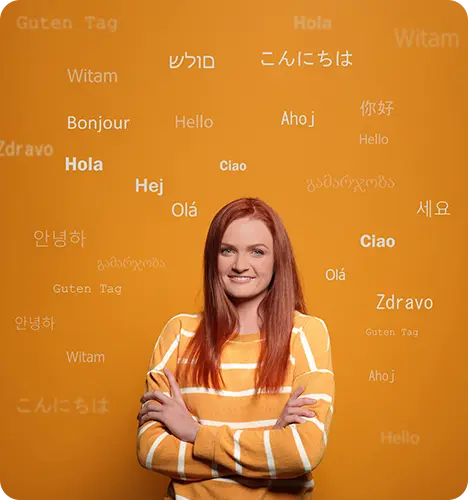Express Entry Visa
Express Entry Visa

Canadian Experience Class
- for skilled workers who have Canadian work experience
- work experience must have been gained in the 3 years before you apply

Federal Skilled Worker Program
- for skilled workers with foreign work experience
- must meet criteria for education and other factors

Federal Skilled Trades Program
- for skilled workers who are qualified in a skilled trade
- must have a valid job offer or a certificate of qualification

Steps:
- Step 1: Find out if you’re eligible
- Step 2: Check your score
- Step 3: Get your documents ready
- Step 4: Fill out your profile
- Step 5: Get an invitation and apply

Eligibility and requirements to apply Express Entry
- skilled work experience
- language ability
- education

Selection Factors for Express Entry
- Age
- Education
- Work experience
- Whether you have a valid job offer
- English and/or French language skills
- Adaptability (how well you’re likely to settle here)
These factors are part of a 100-point grid used to assess eligibility for the Federal Skilled Worker Program. You earn points for how well you do in each of the 6 factors.

Minimum requirements
Skilled work experience
- Managerial jobs (skill type 0)
- Professional jobs (skill level A)
- Technical jobs and skilled trades (skill level B)
- in the same type of job (have the same NOC) as the job you want to use for your immigration application (called your primary occupation)
- within the last 10 years
- paid work (have been paid wages or earned commission—volunteer work or unpaid internships don’t count)
- at least 1 year of continuous work or 1,560 hours total (30 hours per week)—you can meet this in a few different ways:
- full-time at 1 job: 30 hours/week for 12 months = 1 year full-time (1,560 hours)
- equal amount in part-time work: for example 15 hours/week for 24 months = 1 year full time (1,560 hours)
- You can work as many part-time jobs as you need to meet this requirement
- full-time at more than 1 job: 30 hours/week for 12 months at more than 1 job = 1 year full time (1,560 hours)

Part-time work experience
Your skilled work experience must be paid work including paid wages or earned commission. Canadian government does not count volunteer work or unpaid internships.
For part-time work, you can work more or less than 15 hours/week as long as it adds up to 1,560 hours. You can work more than 1 part-time job to get the hours you need to apply.
Canadian government does not count any hours you work above 30 hours/week.

Student work experience
- was paid by wages or commissions
- was continuous (no gaps in employment), and
- meets all the other requirements of the Program

Language ability
- take approved language tests in English or French for:
- writing
- reading
- listening
- speaking
- get a minimum score of Canadian Language Benchmark (CLB) 7 in all 4 abilities
- enter the test results in your Express Entry profile

Education
- secondary institution (high school) or
- post-secondary institution
- a completed credential, and
- an Educational Credential Assessment (ECA) for immigration purposes from a designated organization showing that your education is equal to a completed certificate, diploma or degree from a Canadian:
- secondary institution (high school) or
- post-secondary institution
- World Education Services (WES),
- International Credential Assessment Service of Canada (ICAS),
- Comparative Education Service (CES), University of Toronto School of Continuing Studies
- International Qualifications Assessment Service (IQAS)
- International Credential Evaluation Service.
Professional bodies authenticate and assess foreign educational credentials to determine how they compare to a Canadian credential needed to practice in their respective regulated occupations. They are also recognized as a step in the licensing process.
- Medical Council of Canada (MCC); and
- Pharmacy Examining Board of Canada (PEBC).

Proof of Funds
- are currently able to legally work in Canada
- have a valid job offer from an employer in Canada

How much money you’ll need
- yourself
- your spouse or partner
- your dependent children and
- your spouse’s dependent children
- permanent residents or Canadian citizens
- not coming to Canada with you

This table shows the minimum amount you need to immigrate to Canada as of June 9, 2022. If you have more money, you should list the full amount in your profile or application.
| Number of family members | Funds required
(in Canadian dollars) |
|---|---|
| 01 | $13,310 |
| 02 | $16,570 |
| 03 | $20,371 |
| 04 | $24,733 |
| 05 | $28,052 |
| 06 | $31,638 |
| 07 | $35,224 |
| For each additional family member | $3,586 |
Admissibility
Where you can live in Canada

Important information to obtain an ECA Report
- Comparative Education Service (CES)
- International Credential Assessment Service of Canada (ICAS)
- World Education Services (WES)
- International Qualifications Assessment Service (IQAS)
- International Credential Evaluation Service (ICES)
- Medical Council of Canada (professional body for doctors)
- Pharmacy Examining Board of Canada (professional body for pharmacists)32

